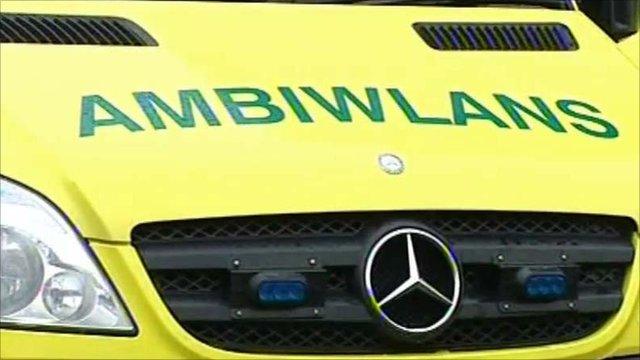Welsh Ambulance staff sickness levels fall in 2015
- Published
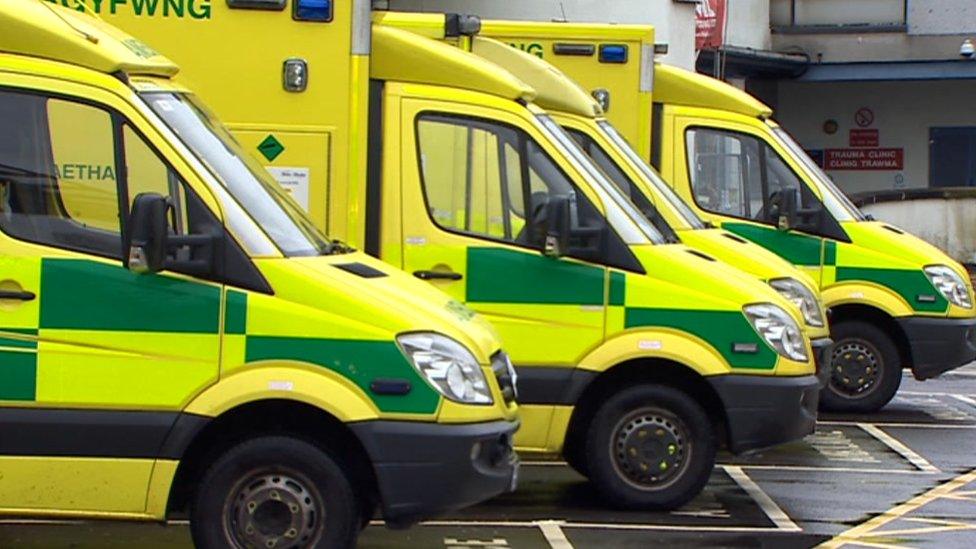
Annual sickness levels among ambulance service staff are at the lowest level since 2012, figures have shown.
They have dropped from a high of more than 8.3% average in 2014 to just below 7% for 2015, but they are still above the overall Welsh NHS average.
The Welsh Ambulance Services NHS Trust has come under fire in recent years over failures to meet response time targets for life-threatening 999 calls.
It led to claims staff were going off sick with stress.
Claire Vaughan, the trust's executive director of workforce said the wellbeing of staff is often pushed to the limit by the nature of their jobs.
"While our sickness absence figures still aren't where we want them to be, we're encouraged that they're moving in the right direction," she added.
"We've launched a range of initiatives to support staff through their sickness absence.
'Difficult circumstances'
"We mustn't lose sight of the fact that our staff save lives every day and work extremely hard in difficult circumstances, which is why we will continue to support them in every way we can."
Welsh Government statistics collate quarterly figures on staff sickness absences.
In 2014, ambulance staff sickness was 8.1%, 7.8%, 8.6 and 8.8% across each quarter. The overall NHS average for the year was 5.55%
In 2015, the figures stood at 7.8%, 6.5%, 6.6% and 6.9% across each quarter while the overall NHS average was 5.3%.
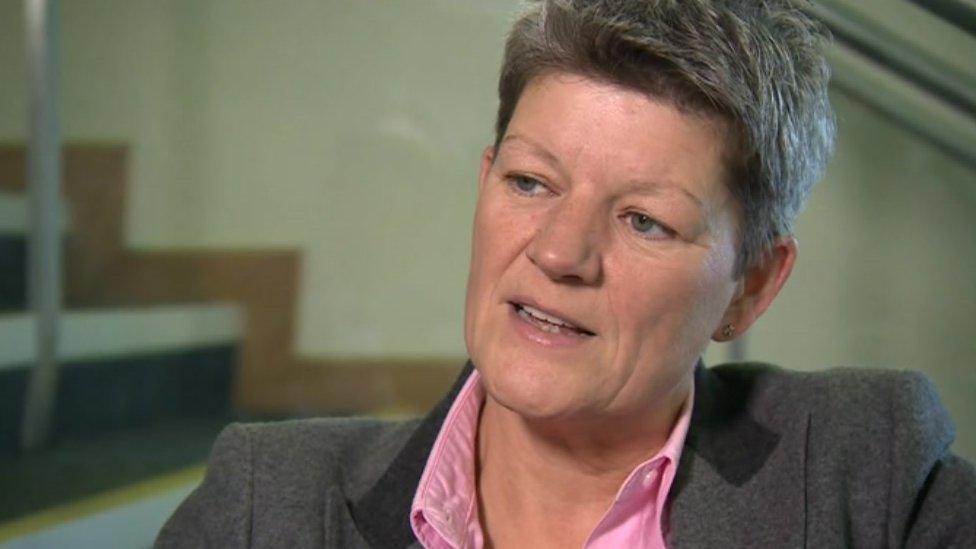
Welsh Ambulance Trust chief executive Tracy Myhill has been credited for helping to bring sickness levels down
However, the last time ambulance sickness levels for any quarter fell below 7% was in the first six months of 2012.
Darron Dupre, Unison Cymru Ambulance lead welcomed the figures and said the trust's chief executive Tracy Myhill has played a key role in the turnaround since starting in October 2014.
"Tracy, working closely with the trade unions, has profoundly challenged and helped remove many of the reasons for stress related ill health in particular which came to a head in the summer of 2014 where sickness rates rose to almost 9%," he said.
"Bullying behaviours, inconsistent decision making and a refusal in some quarters to deal with excess hours and missed rest breaks suffered by road staff throughout Wales almost brought the service to its knees and also contributed to poor overall response time performance.
"The leadership and trade unions have worked together on health and wellbeing for staff."
In October a one year trial began which saw response times for ambulances dropped for all but the most life-threatening calls where 65% need to be reached within 8 minutes.
Early results have shown an improvement.
- Published29 July 2015
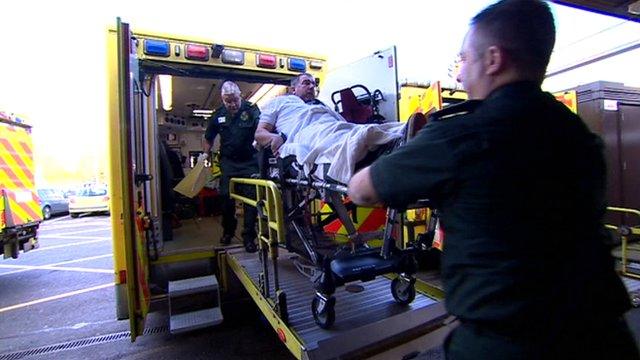
- Published23 October 2014
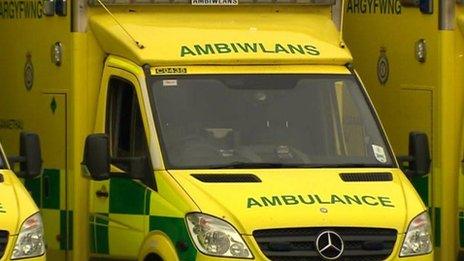
- Published18 February 2014
